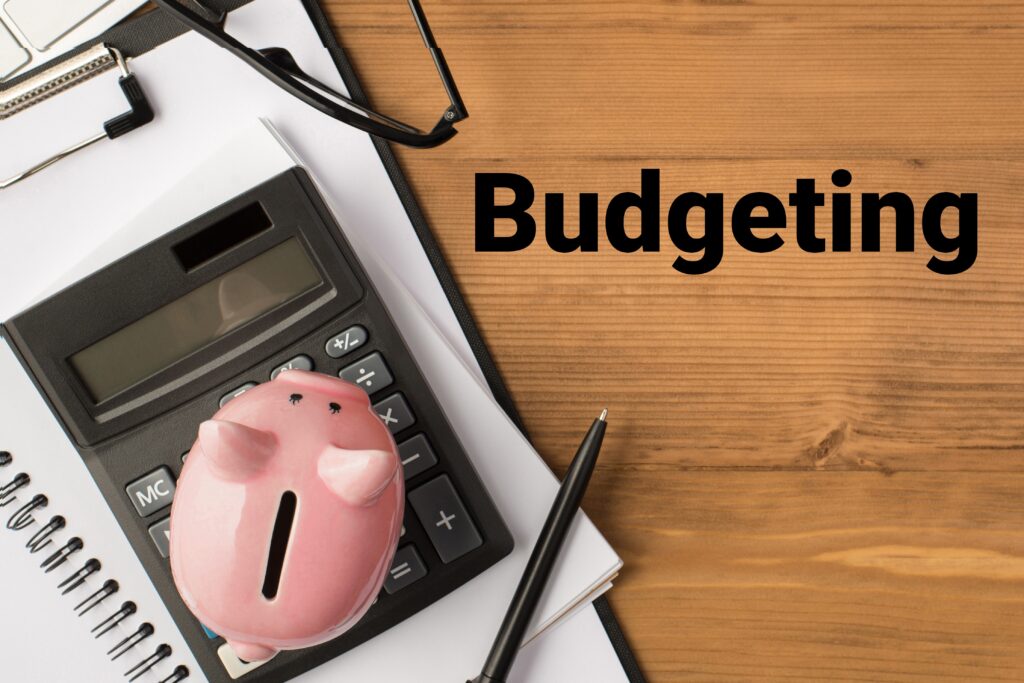Creating a budget is not just about counting the cents; it's about planning for the future. Establishing a budget is a strategy for financial growth and achieving your long-term goals. Whether you want to invest, save for retirement, or buy a house, budgeting is the roadmap to get there.
What is Budgeting?
So, what is budgeting? Simply put, budgeting involves developing a plan for how you will spend your money. It's a helpful tool that guides you to balance your expenses with your income. By creating a budget, you gain control over your financial situation, reduce unnecessary expenses, and maximise your wealth.
Why is budgeting important? Because it gives you a clear picture of where your money is going. This helps you to make smarter financial decisions. If you don't know how much money you have you can't make a realistic plan that you can actually achieve.
Setting Your Goals
Before diving into the nuts and bolts of budgeting, start by identifying your financial goals. Where do you want to be in 5 or 10 years? Writing down the goals and the timeline is crucial because it gives you a clear target to work towards. List your goals as specifically as possible. Here are some examples:
Grow my money to $1M through investments in 5 years
Save $2M for retirement in 10 years
Pay my mortgage off in 5 years - $700k owing
Once your goal is defined we will work backwards to plan how to get there.
How Do I Create a Budget?
Now that you have your goal, let's talk about the basics of creating a budget. There are 5 steps:
1. Write down your monthly income: Start by listing all your sources of income. This could include your salary, any side gigs, or investment returns.
2. List your monthly expenses: List all of your expenses. We recommend separating them into needs (rent/mortgage, utilities, bills) and wants (dining out, entertainment). Don't forget to include a portion of the bills that may not show up every month like insurance or electricity.
3. Subtract your expenses from income: This will show you how much money you have left over each month. If your expenses exceed your income, look for areas to cut back - that is why listing the wants separately is important.
4. Set aside money for savings and goals: Allocate a portion of your leftover money towards your specific financial goals.
5. Review and adjust: Regularly monitor your budget, make adjustments as needed, and stay focused on your goals.
You can build it based on your income schedule if you wish. If you get paid fortnightly for example, do your budget based on each pay. Just remember to allocate a budget portion for those big expenses that come less often.
Play money
When setting out a budget, it's crucial to include a "play money" section. An amount that allows you to enjoy life while still working towards your financial goals. Many money-saving experts advocate for minimising irregular spending as much as possible. While we agree in principle with that statement, we also think that without play money you are less likely to stick to your budget.
By setting aside a reasonable amount for leisure activities, such as dining out or a recreational hobby, you create a balanced financial plan that supports your mental well-being and helps you stick to your budget in the long run.
The key is to strike the right balance. Allocate enough play money to indulge in small pleasures each pay period, but not so much that it derails your savings objectives. For instance, if you're accustomed to eating out daily, transitioning immediately to cooking all your meals at home might be too drastic and hard to maintain. Instead, budget for a takeaway meal or dining out once a week.
This way, you prevent burnout from overly restrictive budgeting and maintain the discipline needed to achieve larger financial goals. By being mindful and intentional about your play money, you can enjoy life's little pleasures while still making significant progress towards your financial aspirations.
A Simple Budget Template
Using a budget template can simplify the process. There are a multitude of apps out there that you can use to do this, but you can simply use Excel or Google Sheets to do this. Simply create one tab per month (or pay period) and input your budgeted amount and an extra column to input your actual expenditure. This extra column will let you see how you did in the month and help you prepare next month’s budget. Here’s a basic example to get you started:
Category | Budget | Actuals |
|---|---|---|
Income | ||
Salary | $ | $ |
Side gigs | $ | $ |
Expenses | ||
Rent / Mortgage | $ | $ |
Utilities | $ | $ |
Phone / Internet | $ | $ |
Groceries | $ | $ |
Transportation | $ | $ |
Insurance | $ | $ |
Play money | $ | $ |
Leftover | $ | $ |
Goals | ||
Savings / Investments | $ | $ |
Remaining | $ | $ |
Use this table as your blueprint, and customise it according to your unique needs and goals. Remember to review and adjust this template regularly to reflect any changes in your financial situation.
Why a budget planner is useful
A budget planner helps you stay on track, providing a visual representation of where your money goes. It makes it easier to identify patterns in your spending habits so you can plan ahead for your future.
If this all seems too complicated and you want some assistance, please contact us. We understand that navigating the world of finances can be challenging and sometimes overwhelming.
We aim to make financial matters easy to understand and to guide you every step of the way. Whether you need help creating an effective budget, setting yourself up for retirement, or setting financial goals, we are here to support you.
Disclaimer: The information contained in this website and any of the resources available through it including eBooks, fact sheets, and seminars (‘Content’) has been prepared for general information purposes only and is not (and cannot be construed or relied upon as) personal advice.


